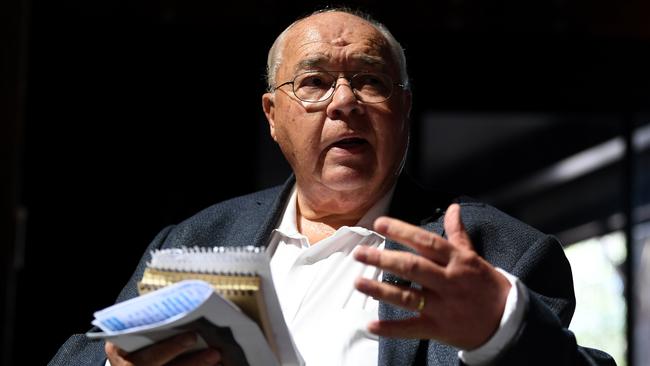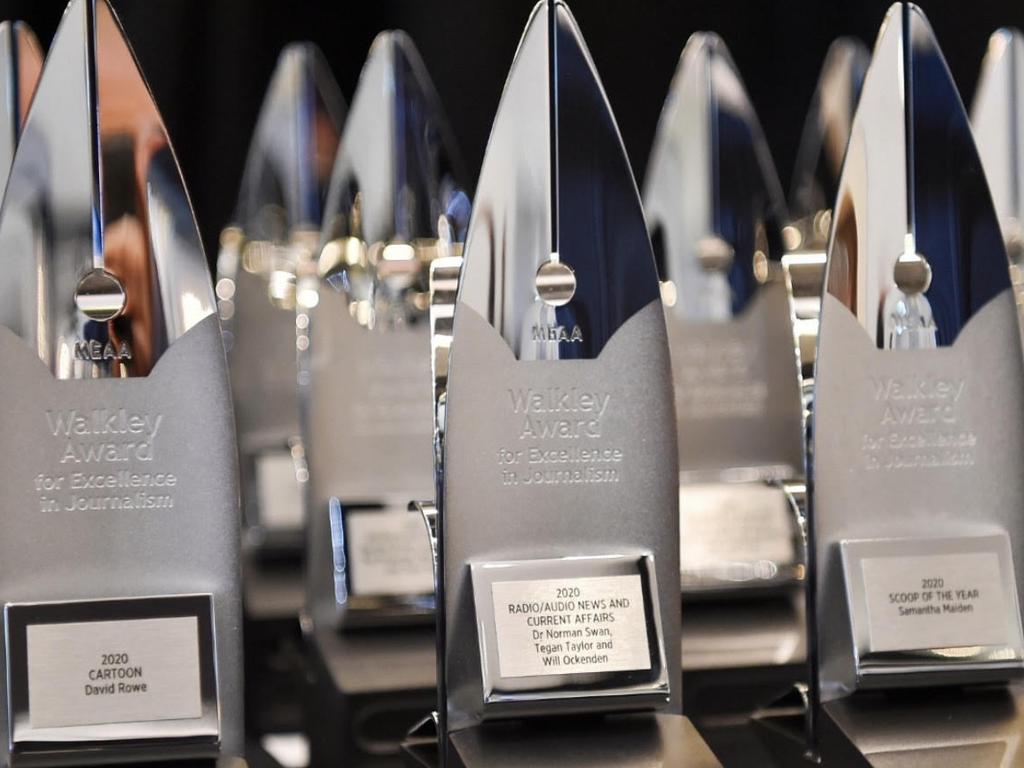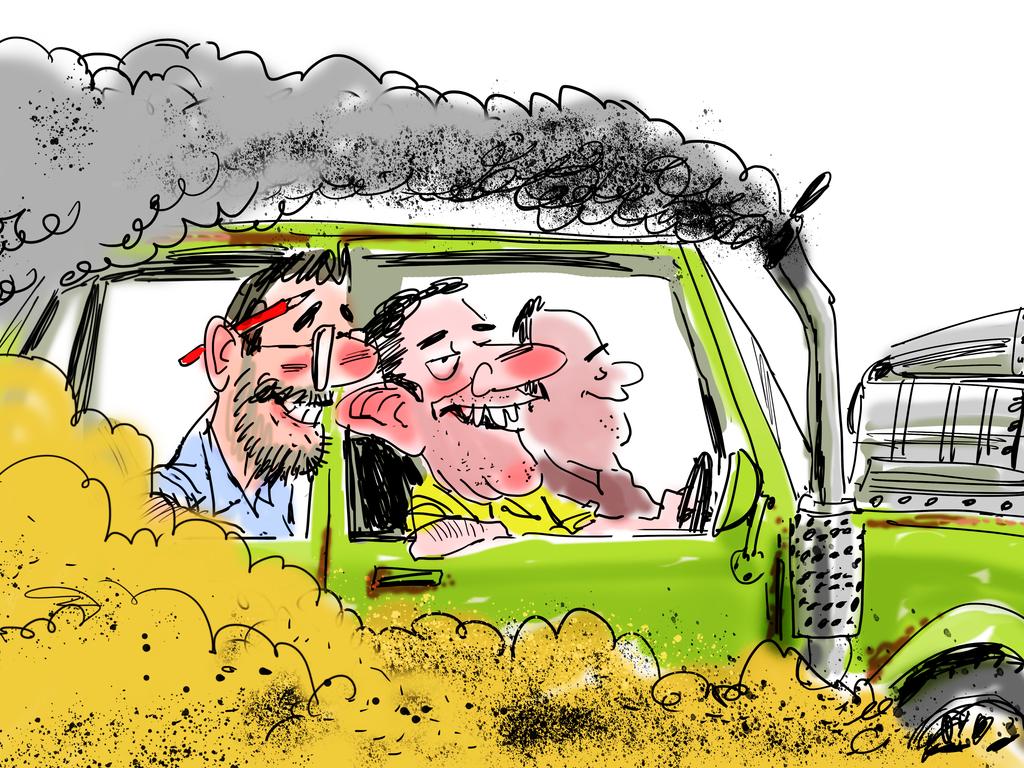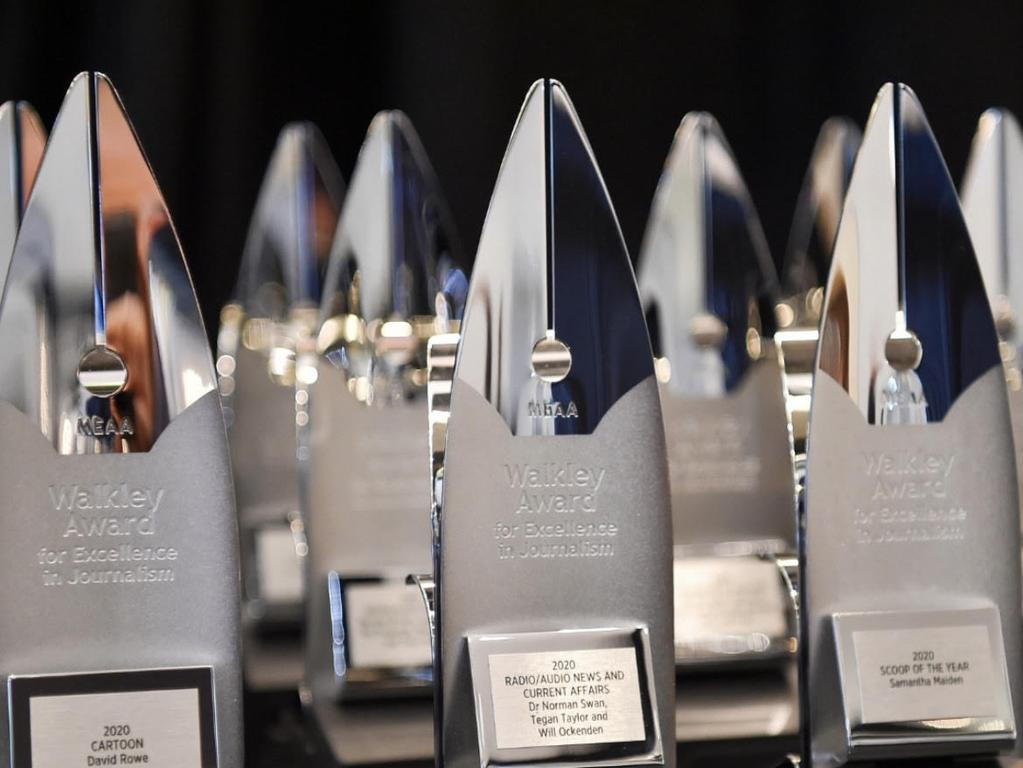Cartoon capers overlook Walkley’s philanthropy
Once upon a time, cartoonists presented as a cynical lot who preferred a witty line at the bottom of a caricature to, say, membership of the Qantas Chairman’s Lounge. Not any more.

Late last week, news broke that some journalists were upset that Ampol was a platinum partner of the 2023 Walkley Awards. The Walkley Foundation describes its mission as celebrating and supporting great Australian journalism. It was set up by Sir William Gaston Walkley (1896-1976) and the first awards were handed out in 1956. New Zealand-born Walkley became the founder of Australian petroleum company Ampol.
It seems the first shot in the Walkley wars was fired in anger by Belinda Noble. Writing in Mumbrella on May 22, she objected that “Ampol is again sponsoring the Walkley Awards”. Her point was that unlike in the 1950s, “we now know the devastating environmental, health and social impacts of burning fossil fuels”.
Noble’s cause was embraced by Jon Kudelka, who draws for the left-wing Saturday Paper. On August 30, he posted a blog supporting those opposed to Ampol’s Walkley Awards sponsorship.
According to Kudelka, “any fossil fuel company that actually gave the slightest damn about the future of the planet would be doing their level best to put themselves out of business as quickly as possible”. He went on to refer to “the collapse of civilisation and possible extinction of the species” if fossil fuels remain extant.
It’s odd that the likes of proclaimed opponents of fossil fuels such as Noble and Kudelka work in the media industry. After all, fossil-fuelled energy plays an important role in the production of websites. Likewise, with the printed version of The Saturday Paper.
It was not long before this comradely duo was joined on the frontline. Last Saturday, The Australian reported that some cartoonists, following Kudelka, had said they would not enter the prize. The list included David Rowe (The Australian Financial Review), Matt Golding (Age/Sydney Morning Herald) and Fiona Katauskas (Guardian Australia). Plus freelancers David Blumenstein and Glen Le Lievre.
Cathy Wilcox (Age/SMH) also expressed concern at the Ampol sponsorship. She expressed her concern in an open (as you do) letter to the Walkley Foundation – the chairwoman of which is Adele Ferguson (ABC).
So, there you have it. Here is a group of cartoonists – who earn their living making fun of others – taking themselves so seriously as to object to a fossil fuel company being a major sponsor of an occasion when journalists dress up in their finest and give one another prizes for their brilliance or whatever.
You would have to possess a high degree of self-importance to believe a suburban or rural motorist would fill up at an Ampol service station because the company sponsored an event that enabled some inner-city journalist to win the Gold Walkley. The evidence suggests the petroleum industry in Australia is quite competitive and motorists look for lowest prices, along with convenience, when refuelling. Kudelka’s artwork is not on their mind.
On Monday there was good news in The Australian’s Media section. Sophie Elsworth reported that News Corp cartoonists Mark Knight (Herald Sun), Warren Brown (The Daily Telegraph) and Johannes Leak (The Australian) would be entering the award, some for the first time. Knight commented: “I’ll be sitting at the Ampol table and my diesel ute will be valet-parked underneath.” Sounds like a cartoonist of old, don’t you think?
Soon this trio was joined by retired journalist Laurie Oakes, who commented that “journalism in Australia is already in trouble in terms of lousy public trust and this makes it worse”.
Then Hedley Thomas said he did not “recall seeing a bicycle rack outside the Walkleys, nor any of the current critics pedalling there in past years” (September 5). And Michael Leunig declared: “I thought cartoonists were free thinkers by their nature and by their work … and not a tribe who act in unison” (September 7).
In the midst of the argument, Osman Faruqi, entered the fray. Writing in The Age and SMH on September 2, Nine’s culture editor pointed out that Walkley not only founded a petroleum company but was also a racist. Faruqi even raised the spectre of Adolf Hitler. Really.
Faruqi reported that, in April 1961, Walkley wrote a column in the SMH where he warned Australia not to “open up our gates to coloured migrants”.
Later that day, the Walkley Foundation threw the switch to apology, stating that it “condemned and expressed deep regret for racist views expressed by the founder of its major awards … in a newspaper column in 1961”.
This would suggest the powers-that-be at the foundation do not know much about their own history and do not do much research.
Barrie Dyster wrote the entry on Walkley in the Australian Dictionary of Biography as long ago as 2002. He cited Walkley’s comment of some six decades previously. And documented where it could be located.
The fact is, circa 1960, Walkley expressed a common view about the need for the continuation of a White Australia – which was shared by the Coalition and Labor alike at the time. Moreover, he wrote this less than two decades after the end of the Pacific War when Australia’s security was threatened by imperial Japan.
It was an unusual unity ticket indeed. But the first two political entities to take a stand against the White Australia policy were the Communist Party and the anti-communist Democratic Labor Party (best known today for its association with activist BA Santamaria). The White Australia policy was effectively abandoned by Harold Holt’s Coalition government in March 1967.
Needless to say, Faruqi completely overlooked Walkley’s good deeds, including his role in developing a petroleum industry in Australia, his support for what was then called soccer as a means of helping migrants to assimilate, and his substantial financial backing for deaf and blind children.
The evidence suggests some left-of-centre cartoonists take themselves too seriously. And that the body that hands out journalism’s glittering prizes would be well advised to think before it regrets.
Gerard Henderson is executive director of the Sydney Institute.








Once upon a time, cartoonists presented as a cynical lot who preferred a clever and witty line at the bottom of a caricature drawing to, say, membership of the Qantas Chairman’s Lounge. Not any more, it seems. Not with respect to the cartoonists of the leftist kind.